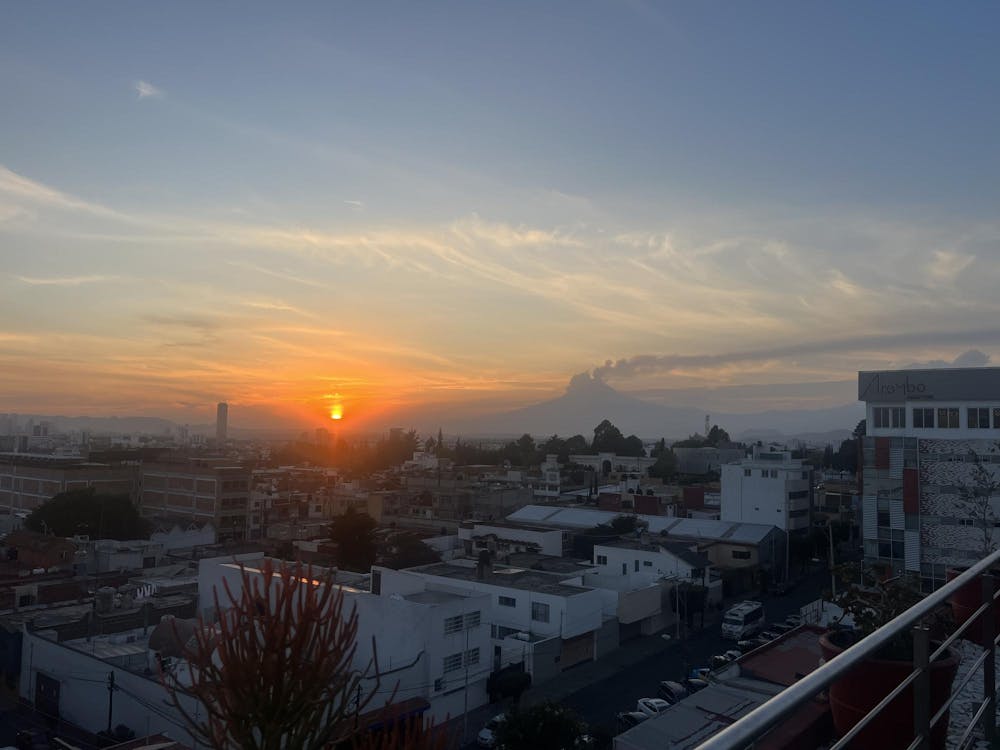The Puebla study abroad program is small, to say the least. We are a group of seven students, and at the risk of sounding boring, I spend every single day with them.
That is not to say we don’t have friends at our host university. Universidad Popular Autónoma del Estado de Puebla (UPAEP) has a club called Global Crew that plans events for the exchange students, and our social obligations are now delightfully international. (“Are the Korean students joining?” “No, but I think the Russian girls are there.”) We all have host families and friends from extracurriculars and hours-long facetimes to our roommates at Notre Dame.
But most of my social interaction is with these six people — a sudden and unexpected narrowing of my network. It’s kind of like spending an entire semester with a randomly assigned group from summer camp. We felt that inexplicable urgency to get to know each other — countless stories were swapped at a bonfire on night two. We scrambled to form a group identity, debating the group chat name and insisting that we are the Notre Dame coordinators’ favorites. (Which, by the way, we are.) Laila and I had our first argument and made up within 12 hours. I could name Declan’s top five artists in order by week three, and he could probably do the same for me. We are speedrunning friendship, except we didn’t say goodbye after a week or two of “camp.”
I love this group of people dearly. They are funny, adventurous and opinionated. We almost never run out of something to talk about. At times, though, we exist in a weird pressure cooker. Spending so much time with the same people magnifies the demands of community and togetherness. It feels like I am witnessing a case study in friendship groups, assigned by scientists (Notre Dame International) and placed in an unfamiliar environment (¡México!). And the end of the experiment (mid-May, when we return to the States) hangs over us.
Recently, an economics class about migration from Notre Dame came to Puebla for a week to meet with migrants and volunteer at shelters across central Mexico. We split our time between education and tourism, showing the students our favorite churrería and taking them to lucha libre. Talking to the students was a welcome reminder of South Bend — the rhythm of endless Notre Dame introductions and updates on campus gossip. But my group of seven still felt slightly separate from the other students, even though many of us were friends with those visitors before our semester in Puebla began.
I joked to Laila at one point that eating dinner with the economics class felt like introducing my family to my college friends. I was presenting these people who I knew intimately to a wider group of acquaintances, hoping that 1) they all liked each other and 2) the visitors were impressed by our familiarity with each other. It was a weird thought to have, admittedly; three months of constant exposure pales in comparison to the 18 years of fights and jokes I have with my actual family. But I think it's a testament to the power of forced proximity.
I would not have been friends with most of the Puebla group if it weren’t for this bizarre “long-term vacation.” We run in different circles at Notre Dame, and no matter how well we get along now, that fact will confront us when we return in the fall. Nevertheless, our time together has created a common language — of jokes and shared obsessions, of planned fruit sticker tattoos and oversharing.
During the first few weeks of freshman year, I remember this constant terror that I would just miss meeting my best friend. I felt compelled to introduce myself to everyone — in class, at those unbearable freshman mixers and in orchestra. What if the person at Notre Dame who I am meant to share everything with — in that desperate, confessional way of girlhood — is just beyond my reach? My God and the Good Life dialogue had this conversation once, about whether our freshman selves would have found the same group of friends if we were assigned to a different dorm. Despite my best efforts, I wouldn’t have. But similar personalities are a far less potent distillation of close friendship than shared experiences. The same thing is true here. I love the Puebla group as people, but I especially love them as people with whom I went rafting in Xico or saw “Dune Part Two” or flew to Guatemala.
This experiment is awkward at times: I often feel like I’ve said too much or overstepped. Just like at summer camp, you’re never really sure how well a short-term friendship is going to stick, regardless of how much you wish it would. But while we’re abroad for a few more months, I don’t think that really matters. We remain available to each other now, despite the friction and the impending deadline of return. What is friendship other than sincere presence? And this ashy Thursday at volcano Popocatépetl, I am here with them, sharing one last manzana enchilada before break.










